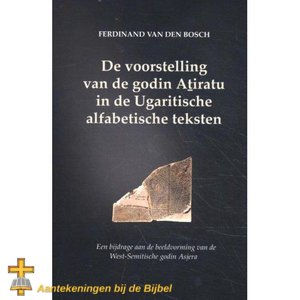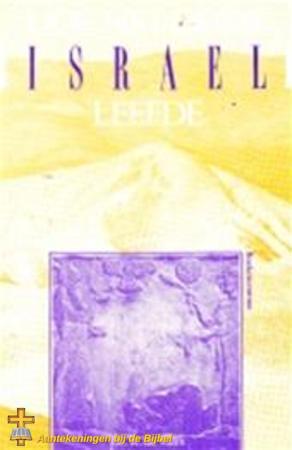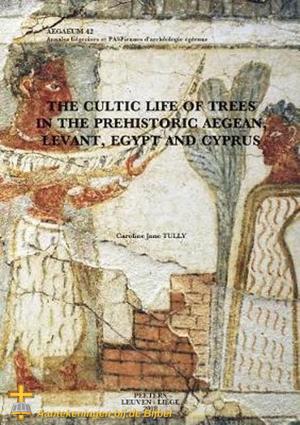
welke resulteren in allerlei aantekeningen.
Asherah (Hebreeuws אֲשֵׁרָה H842) een godin. Werd vereerd door planten van heilige bomen.
Astarte zou haar dochter zijn geweest of kan vereenzelvigt worden met Asherah
In de Statenvertaling worden de Ashera palen vaak aangegeven als "gewijde bomen", "gewijde bossen" of "hagen". Bij archeologische opgravingen zijn meerdere van deze Ashera palen teruggevonden in (kleine) tempels. Deze palen zijn een halve meter tot iets meer dan een meter hoog.
In 2011 was er een door de BBC uitgezonden tv-serie genaamd ‘Bible’s Buried Secrets’, gepresenteerd door Dr. Francesca Stavrakopoulou met daarin een aflevering getiteld ‘Did God Have a Wife?’ (BBC, 21 december 2011; Times, 22 maart 2011). Hierin verkondigde ze dat naar alle waarschijnlijkheid de Bijbeltekst "tot Zijn rechterhand was een vurige wet aan hen" (Deut. 33:2) was veranderd en er oorspronkelijk had gestaan "aan Zijn rechterhand was zijn eigen Asherah". Nu was zij niet de eerste die dit betoogde (D. Steinberg, Asherah in Deuteronomy 33?; R. Worthington, Feminist Theology, Vol. 27.1 p. 43-59).
Bovendien lijken hun beweringen archeologische ondersteuning te vinden, omdat in Kuntillet Ajrud en Khirbet el-Qom er inscripties zijn gevonden waar JHWH met "zijn Asherah" (of correcter asheratah) wordt genoemd. Michael S. Heiser stelt dat dit echter nog geen bewijs is dat God oorspronkelijk een vrouw had, alleen dat "at some point during the biblical period in Israel, someone believed Yahweh had a wife" en somt dan een viertal andere problemen op (M.S. Heiser, 22 maart 2011).
Op het eerste gezicht lijken אֵ֥שׁ דָּ֖ת H784 H1881 "vurige wet" en אשרה (mv. אשרות) "Asherah" in Deuteronomium 33:2 erg op elkaar. Opvallend is dat in de Hebreeuwse manuscripten we zo'n variant nergens tegenkomen (Nb. in de Dode Zee-rollen 4QDeutl en 4QpaleoDeutr is dit gedeelte helaas niet overgeleverd).
Nu is het probleem dat דָּת H1881 "wet" een leenwoord is van het oud-Perzisch dāta– (E. Klein, p. 133) en niet kan voorkomen in zo'n oud gedicht omdat de Joden pas in de zesde eeuw v.C. werden verbannen (R. Worthington, Feminist Theology, Vol. 27.1 p. 43-59). Door de commentatoren zijn dan ook diverse verklaringen verzonnen. C.J. Ellicott (1878–1884) geeft de volgende verklaring "The LXX. has “angels” (ἄγγελοι G32), instead of the combination eshdath. Possibly the word was taken as ashdoth (plural of the Chaldee ashda), meaning “rays” (of light?) and so “angels.” Comp., “He maketh His angels spirits, and His ministers a flame of fire;” they “ran and returned as a flash of lightning” (Psalm 104:4; Ezekiel 1:14). It is also possible that the LXX. read r instead of d in the word which they had before them, and that they arrived at the meaning “angels” through the Hebrew word shârath H8334, “to minister.” The confusion between r and d, which are extremely alike in Hebrew, is very common." (Ellicott's Commentary for English Readers, Deut. 33:2).
Keil & Delitzsch geven "It must be read as one word, אשׁדת, as it is in many MSS and editions – not, however, as connected with אשׁד, אשׁדות H793, the pouring out of the brooks, slopes of the mountains (Num. 21:15), but in the form אשּׁדת, composed, according to the probable conjecture of Böttcher, of אשׁ H784, fire, and שׁדה (in the Chaldee and Syriac), to throw, to shoot arrows, in the sense of "fire of throwing," shooting fire, a figurative description of the flashes of lightning. Gesenius adopts this explanation, except that he derives דּת from ידה, to throw. It is favoured by the fact that, according to Exodus 19:16, the appearance of God upon Sinai was accompanied by thunder and lightning; and flashes of lightning are often called the arrows of God, whilst שָׁדָה, in Hebrew, is established by the name שׁדיאוּר H7707 (Num. 1:5; 2:10). To this we may add the parallel passage, Habakkuk 3:4, "rays out of His hand," which renders this explanation a very probable one."
Aangemaakt op 15 mei 2005, laatst bijgewerkt op 23 mei 2020
     |
![]() Zie de huisregels welk commentaar wordt opgenomen!
Zie de huisregels welk commentaar wordt opgenomen!